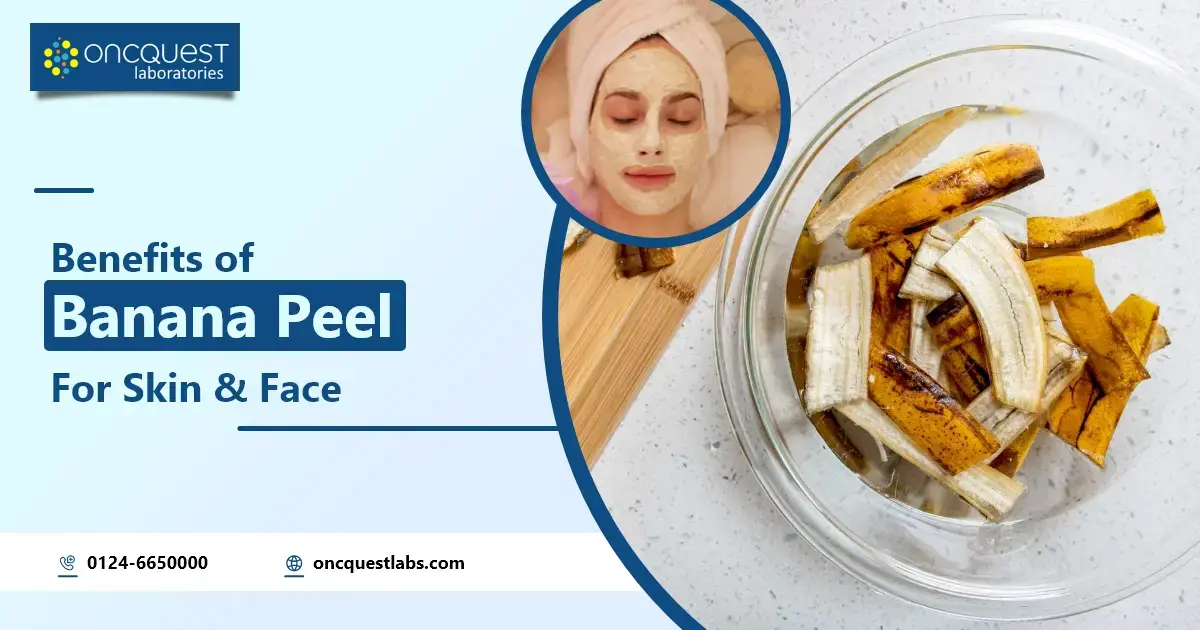In the realm of natural skincare remedies, the banana peel stands out as a surprising yet effective option for enhancing skin health. Often overlooked and discarded after consumption, banana peels are rich in nutrients that can nourish and rejuvenate the skin. Packed with vitamins, antioxidants, and enzymes, banana peels offer a range of benefits, from moisturizing and brightening the skin to soothing irritation and combating signs of aging. This article explores the various ways banana peel can be used to achieve glowing, youthful skin, providing insights into its properties, application methods, and potential advantages backed by both anecdotal evidence and scientific research. Discover how this humble fruit byproduct can elevate your skincare routine naturally and affordably.
Contents
Banana Peel Nutrition
Certainly! Here’s a simplified table outlining the nutrition found in banana peels:
| Nutrient | Amount per 100g of Banana Peel |
| Vitamin A | 98 IU |
| Vitamin B6 | 0.5 mg |
| Vitamin C | 8.7 mg |
| Potassium | 259 mg |
| Magnesium | 27 mg |
| Dietary Fiber | 2.6 g (2.0 g insoluble, 0.6 g soluble) |
| Protein | 1.3 g |
| Total Carbohydrates | 22.8 g |
| Calories | 89 kcal |
Note: The values provided are approximate and can vary based on the size and ripeness of the banana. The nutritional content of banana peels can vary slightly from one banana variety to another.
Benefits of Banana Peel for Skin & Face
Using banana peel for your face can offer several benefits due to its rich content of vitamins, minerals, and antioxidants. Here are 15 potential benefits of using banana peel on your face:
Moisturizes skin
Banana peel is a natural moisturizer for the skin, thanks to its high water content and beneficial nutrients like vitamins A, B, and E. When applied topically, it hydrates the skin deeply, leaving it feeling soft and supple. The peel also contains antioxidants that help maintain skin elasticity and prevent dryness. Regular use can replenish moisture levels, particularly beneficial for dehydrated skin types. Its soothing properties further contribute to a refreshed and revitalized complexion, promoting overall skin health and radiance.
Reduces wrinkles
Banana peel contains antioxidants such as vitamin C and lutein, which can help reduce the appearance of wrinkles and fine lines. These antioxidants neutralize free radicals contributing to skin aging, thereby supporting collagen production and skin elasticity. Applying banana peel topically may tighten the skin and improve its overall texture over time. Its moisturizing properties also keep the skin hydrated, which can further diminish the visibility of wrinkles. Regular use of banana peel as a part of your skincare routine may help maintain a smoother and more youthful-looking complexion.
Soothes inflammation
Banana peel offers effective soothing properties for inflammation-prone skin. It contains antioxidants like vitamin C and vitamin E, which help reduce inflammation by neutralizing free radicals that contribute to skin irritation. Additionally, the peel has natural anti-inflammatory compounds that can calm redness and swelling, making it suitable for conditions like acne, rosacea, or sunburn. Applying banana peel topically can provide gentle relief, promoting skin healing and restoring comfort. Its soothing effects make it a gentle yet effective remedy for soothing various types of skin inflammation.
Lightens dark spots
Banana peel is known for its potential to lighten dark spots and hyperpigmentation on the skin. It contains enzymes and natural acids, such as citric acid and lutein, which can help fade discoloration over time. These compounds work by gently exfoliating the skin, promoting the shedding of dead skin cells that contribute to dark spots. Additionally, the peel’s moisturizing properties help nourish and rejuvenate the skin, contributing to a more even skin tone. Regularly applying banana peel on dark spots can gradually lighten them, resulting in a clearer and more radiant complexion with continued use.
Treats acne
Banana peel is a natural remedy for acne due to its antibacterial and anti-inflammatory properties. It contains compounds like lectin and zinc that help combat acne-causing bacteria and reduce inflammation, soothing redness and swelling. Additionally, the peel’s gentle exfoliating action helps unclog pores, preventing new breakouts. Regular application can regulate excess oil production, promoting clearer skin. To use, gently rub the inner side of a banana peel on clean skin affected by acne for a few minutes, leave it on for 10-15 minutes, then rinse off. Incorporating this into your skincare routine can help maintain healthier, blemish-free skin.
Evens out skin tone
Banana peel is praised for its ability to help even out skin tone naturally. It contains vitamins such as vitamin C and vitamin E, along with natural enzymes and acids like citric acid, which can promote gentle exfoliation. This exfoliation helps to remove dead skin cells and promote cell turnover, revealing newer and brighter skin underneath. Additionally, the peel’s moisturizing properties hydrate the skin, which can further contribute to a more balanced complexion. Regularly using banana peel on the skin can help diminish the appearance of dark spots, pigmentation, and uneven skin tone, resulting in a smoother and more radiant overall appearance.
Heals dry skin
Banana peel is a fantastic natural remedy for healing dry skin. It’s rich in moisture, vitamins (such as A, B, and E), and minerals that can nourish and hydrate parched skin. The peel’s high potassium content also helps moisturize and soften the skin, making it particularly beneficial for areas prone to dryness, like elbows, knees, and heels. Additionally, banana peel contains antioxidants that can repair and protect the skin barrier, reducing flakiness and irritation. Regularly applying banana peel on dry areas can help restore moisture balance, leaving your skin feeling smoother, softer, and more supple.
Fades acne scars
Banana peel is known for its potential to fade acne scars over time. It contains vitamins and antioxidants that promote skin healing and regeneration, which can help diminish the appearance of scars left behind by acne lesions. The peel’s natural enzymes and acids, such as citric acid, gently exfoliate the skin, encouraging the shedding of dead skin cells and promoting the growth of new, healthy skin cells. Additionally, its moisturizing properties help keep the skin hydrated and nourished, which aids in improving skin texture and reducing the visibility of scars. Regularly using banana peel on acne scars can contribute to a smoother and more even complexion with continued application.
Nourishes skin
Banana peel is a rich source of nutrients that can deeply nourish the skin. It contains vitamins such as vitamin A, which supports skin cell regeneration and repair, and vitamin B, which helps maintain skin hydration and elasticity. Additionally, vitamin E in banana peel acts as an antioxidant, protecting the skin from damage caused by free radicals and environmental stressors. These vitamins work together to nourish the skin, leaving it feeling soft, smooth, and rejuvenated. Regularly using banana peel on the skin can provide essential nutrients that promote overall skin health and radiance.
Controls oiliness
Banana peels are excellent for controlling excess oil on your face. Rich in antioxidants and essential nutrients, the peel helps to balance oil production and reduce shine. Simply rubbing the inside of a banana peel on your face can help absorb excess oil and leave your skin feeling fresh. The natural enzymes and starch in the peel work to cleanse pores and regulate oil levels, making it a simple yet effective remedy for oily skin. Use regularly for best results.
Tightens skin
Banana peels can help tighten and firm your skin naturally. The peel is rich in antioxidants and silica, which boost collagen production, improving skin elasticity. Regularly rubbing the inside of a banana peel on your face can reduce the appearance of fine lines and wrinkles, giving your skin a smoother and more youthful look. The vitamins and minerals in the peel nourish and strengthen the skin, making it an effective remedy for maintaining a firm and toned complexion.
Improves complexion
Banana peels are great for enhancing your complexion. Packed with vitamins A, B, C, and E, they help to lighten dark spots and even out skin tone. Regularly rubbing the inside of a banana peel on your face can reduce blemishes and give your skin a radiant glow. The antioxidants in the peel fight free radicals, promoting a clearer and brighter complexion. Use this natural remedy consistently to see noticeable improvements in your skin’s appearance.
Side Effects of Banana Peel on Face
While banana peels are generally safe and beneficial for most people, there are potential side effects and considerations to keep in mind when using them on the face:
Allergic Reactions
Allergic reactions to banana peel on the face can manifest as itching, redness, swelling, or rash. Individuals with banana allergies may be particularly sensitive and should perform a patch test before full application. Symptoms can vary from mild irritation to more severe reactions, especially for those with sensitive skin or existing allergies. It’s crucial to discontinue use immediately if any discomfort occurs and seek medical advice if symptoms persist. Opting for organic bananas can reduce the risk of pesticide-related skin reactions.
Skin Sensitivity
Skin sensitivity to banana peel may result in irritation or redness, particularly for those with delicate or reactive skin types. The enzymes and natural acids in banana peel, while beneficial for many, can sometimes exacerbate sensitivity or existing skin conditions like eczema. It’s advisable to conduct a patch test before widespread application and to start with minimal exposure. Using organic bananas can also mitigate the risk of exposure to pesticides, potentially reducing adverse reactions. If irritation persists or worsens, discontinuing use is recommended, followed by consulting a dermatologist for personalized advice.
Acne Aggravation
Banana peel, touted for its antibacterial properties, can inadvertently exacerbate acne if not used properly. Residue left on the skin after application may clog pores, leading to increased breakouts, especially for acne-prone individuals. It’s crucial to cleanse the face thoroughly before applying banana peel and to limit its use to avoid pore congestion. Additionally, those with sensitive or reactive skin should monitor their skin’s response closely and discontinue use if acne worsens. Consulting a dermatologist can provide personalized guidance for managing acne-prone skin effectively.
Staining
Banana peels contain natural pigments that can temporarily stain the skin, particularly for individuals with lighter skin tones. This staining is usually mild and fades over time, but it can be noticeable and bothersome for some. To minimize staining, it’s recommended to cleanse the skin thoroughly after using banana peel and to avoid leaving it on the skin for extended periods. Choosing ripe bananas and applying the peel gently can also reduce the likelihood of excessive pigment transfer. If staining occurs, gentle exfoliation or using a mild cleanser can help remove residual color.
Pesticide Residues
Pesticide residues can potentially be present on banana peels, especially if they are conventionally grown. These residues may transfer to the skin upon contact and could potentially cause skin irritation or allergic reactions in sensitive individuals. Choosing organic bananas can reduce exposure to pesticides and minimize the risk of adverse reactions. It’s advisable to wash bananas thoroughly before use and consider peeling them to further reduce exposure. Opting for organic options ensures a cleaner, pesticide-free skincare approach, promoting safer use of banana peels for skincare purposes.
Eye Irritation
Eye irritation can occur if banana peel comes into contact with sensitive eye tissues. The natural compounds in banana peel, such as enzymes and acids, can cause discomfort, redness, or watering of the eyes. It’s crucial to avoid applying banana peel near the eyes or to rinse thoroughly if accidental contact happens. When using banana peel for skincare, always prioritize keeping it away from the eye area to prevent irritation and discomfort. If eye irritation persists or worsens, seek medical attention promptly for appropriate care and advice.
How to Use Banana Peel on Face
- Choose a Ripe Banana: Select a ripe banana with a yellow peel. Ripe bananas are softer and easier to work with for skincare purposes.
- Wash the Banana: Rinse the banana thoroughly under running water to remove any dirt or residues from the peel.
- Peel the Banana: Peel the banana from the stem end. Use the banana flesh for eating or other purposes, and set aside the peel for skincare.
- Cut the Peel (Optional): Cut the banana peel into smaller pieces for easier handling, or use it as is.
- Rub the Inner Side: Gently rub the inner side of the banana peel over clean, dry skin. Use circular motions to ensure even application.
- Massage or Leave On: You can either massage the skin with the banana peel for a few minutes or leave the residue on the skin for about 10-15 minutes to allow the nutrients to absorb.
- Rinse Off: After the desired time, rinse your face with lukewarm water to remove any residue from the banana peel.
- Pat Dry: Gently pat your face dry with a clean towel. Avoid rubbing, as this can irritate the skin.
- Apply Moisturizer (Optional): Follow up with your regular moisturizer to lock in hydration and maximize the benefits of the banana peel treatment.
Tips for Using Banana Peel on Face:
- Frequency: Start with using banana peel on your face 2-3 times a week to gauge your skin’s response. Adjust frequency based on your skin’s sensitivity and tolerance.
- Patch Test: Perform a patch test on a small area of your skin (like the inner forearm) before applying banana peel to your face to check for any allergic reactions or sensitivity.
- Organic Bananas: Opt for organic bananas to minimize exposure to pesticides and chemicals that may be present on conventional bananas.
Using banana peel on the face is a gentle and natural approach to skincare, offering hydration, nourishment, and potential benefits like improved skin tone and texture. Incorporate it into your skincare routine as needed to achieve healthy, glowing skin.
Conclusion
In conclusion, banana peel is a versatile and natural skincare ingredient that offers numerous benefits for the face. Rich in vitamins, antioxidants, and moisturizing properties, banana peel can help hydrate the skin, reduce wrinkles, lighten dark spots, and soothe irritation. When used properly, it provides a cost-effective and eco-friendly alternative to commercial skincare products. However, it’s essential to be mindful of potential allergic reactions, skin sensitivity, and pesticide residues. Always perform a patch test and choose organic bananas when possible to minimize risks. Incorporating banana peel into your skincare routine can contribute to healthier and more radiant skin over time.
FAQs (Frequently Asked Questions)
Can banana peel cause allergic reactions?
Yes, some individuals may be allergic to proteins in bananas, leading to itching, redness, or swelling. Perform a patch test before applying banana peel to the face.
How often should I use banana peel on my face?
Start with 2-3 times a week and adjust based on your skin’s response. Those with sensitive skin may need to use it less frequently.
Can banana peel lighten dark spots?
Yes, enzymes and acids in banana peel can help fade dark spots over time, promoting a more even skin tone.
Are Banana Peels Good for Your Skin?
Yes, banana peels are good for your skin. They hydrate, reduce wrinkles, lighten dark spots, and soothe irritation, promoting a healthy and radiant complexion naturally.





